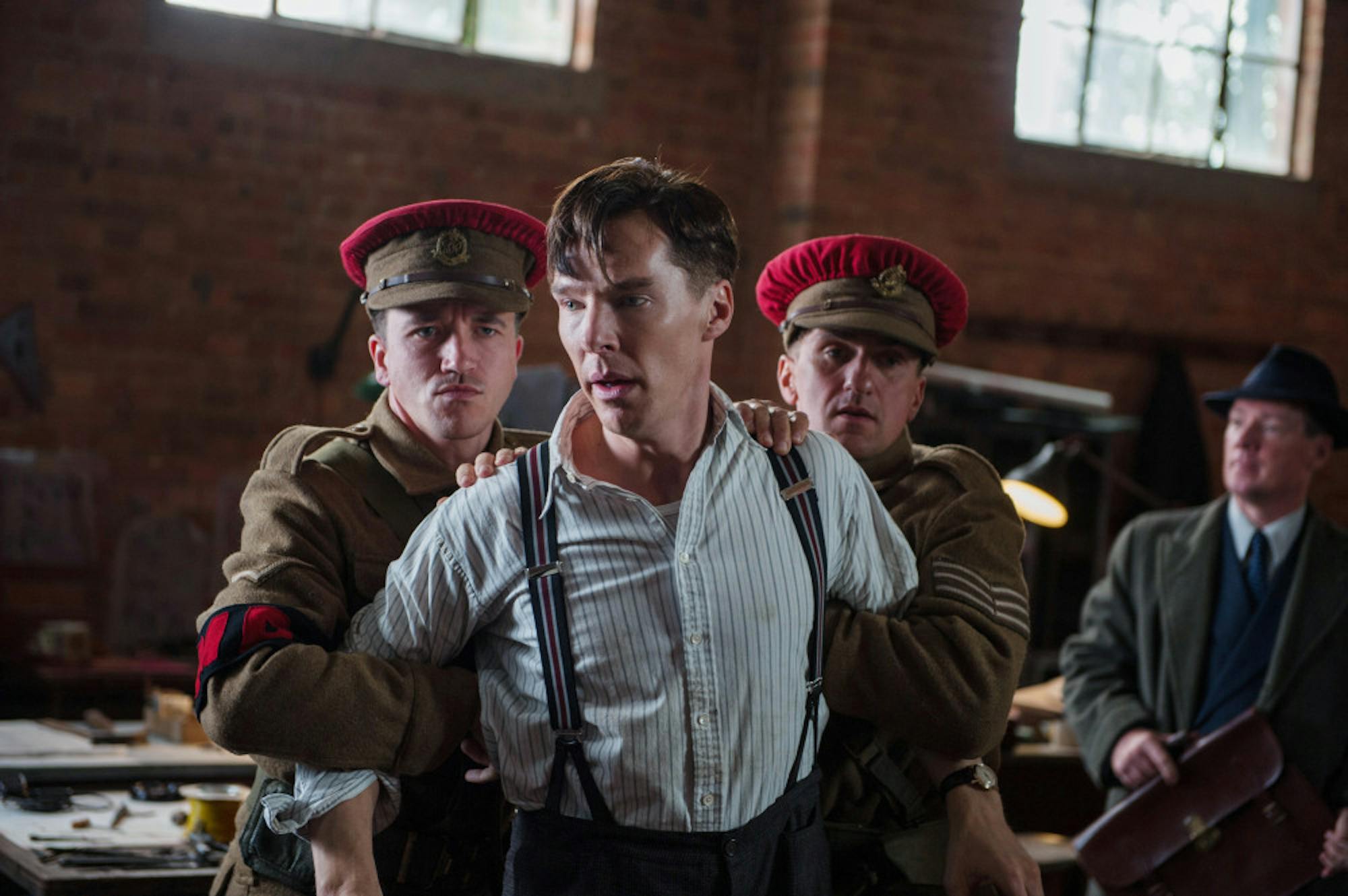Only about six months after the first computer supposedly passed the Turing test -- Alan Turing’s test for determining whether a machine can be said to "think" -- “The Imitation Game” (2014) is here to shed light on the unsung champion of World War II and the man who laid much of the groundwork for modern computer science. Despite a heavy-handed and somewhat confusing script, adapted from Andrew Hodges' biography, “Alan Turing: The Enigma” (1983), the film is an enjoyably informative and beautifully acted portrait of Turing’s complex contribution to WWII.
Benedict Cumberbatch stars as Turing, a mathematician and cryptographer who helped lead the Allies to victory after breaking the German Enigma code. This “impossible” code, encrypted by a device with 159 million-million-million settings, was supposedly responsible for taking innumerable lives during the war. “The Imitation Game” tells the story of how Turing, with the help of his team of cryptographers -- including Turing’s fiancé and secret confrere Joan Clarke (Kiera Knightley) -- invented a machine, one of the first modern computers, to break the code instantly. The film also addresses other aspects of Turing's life, which -- despite his accomplishments -- was tragically short; after the war, he was prosecuted for homosexual acts, which were illegal in the United Kingdom until 1967, and he died only two years later.
On a purely historical level, the film constitutes an interesting look at the seldom-told story of the men and women who fought WWII in off-the-battlefield roles. Despite a few snippets of actual war footage and some shots of the air raids on Britain, the film contains very little violence and action -- a far cry from traditional war films like “Fury” (2014), released last month. Somewhere in the background people are dying, but in "Imitation" the real war takes place among battling egos and between characters outsmarting one another to get what they want. This relatively microscopic focus throws the whole idea of WWII as a fight for democracy and freedom into question.
The movie's portrayal of Turing himself is likewise ambiguous. The first lines of the film, spoken by Turing, carry an order to the audience: “You can judge me when, and only when, I am finished. If you cannot commit to this, then please leave the room now.” By the end of the film, each person walking out of the theater must decide for themselves: Is he a man and a war hero, or a machine and a murderer? The answer is never clear.
Regardless of how they respond to Turing, moviegoers will almost certainly leave theaters impressed with Cumberbatch's performance. Though he recently filled minor roles in both “Penguins of Madagascar,” released last week, and “The Hobbit: The Battle of the Five Armies,” which hits theaters next month, Cumberbatch shines in this role. Evoking his TV persona as the famous detective in BBC’s "Sherlock" (2010 - present), Cumberbatch expertly portrays Turing as an antisocial and obnoxiously intelligent loner while simultaneously highlighting the sympathetic, even droll, aspects of his character. Such performance may well win him an Academy Award for best actor.
Apart from skillful acting, the film also benefits from a fascinating story and lovely cinematography. Alexandre Desplat’s score is also particularly beautiful -- a spinning, soaring sort of melody that perfectly matches both the revolving wheels of Turing’s machine and the tragic war that inspired its creation. The only thing holding this film back is its unsatisfying script, which focuses too much on making the film’s themes explicit and not enough on making the film enjoyable. A few key scenes are just plain confusing, and more than a few lines feel embarrassingly cliché in an otherwise very tasteful film. Some of the subplots, too, while meant to add more moral significance to the story, just feel hollow. On the other hand, anyone who’s read Turing’s “Computing Machinery and Intelligence” -- the 1950 paper in which Turing described his “imitation game” -- will be happy to find that a touch of his functionalist theories on the nature of minds made it into the film, if only in a small way.
Though currently making a slow start at the box office, “The Imitation Game” is bound to be an Oscar favorite and perhaps considered one of the best films of the year. This film is a must-see for history buffs, computer scientists and anyone in between.






